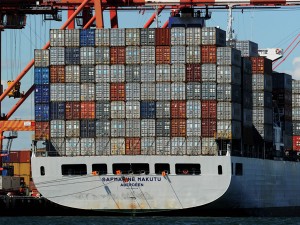
The Philippines will remain Southeast Asia’s growth leader until next year, buoyed by strong demand for exports from advanced economies, the International Monetary Fund (IMF) said this week. FILE PHOTO
MANILA, Philippines–The Philippines will remain Southeast Asia’s growth leader until next year, buoyed by strong demand for exports from advanced economies, the International Monetary Fund (IMF) said this week.
In its latest World Economic Outlook (WEO), the multilateral lender said prospects for the global economy remained uncertain due to a worsening of geopolitical tensions and a reversal of recent risk spread and volatility compression in financial markets.
Medium-term risks would include stagnation and low potential growth in advanced economies and a decline in potential growth in emerging markets. The world economy is expected to grow by 3.3 percent this year, slower by four-tenths of a percent than the previous IMF forecast in April.
For Southeast Asia and other emerging markets, the picture looked brighter. The Association of Southeast Asian Nations’ (Asean) five major economies, namely Indonesia, Malaysia, Philippines, Thailand and Vietnam—known as the Asean 5—were seen expanding by 4.7 percent in 2014 and 5.4 percent in 2015.
The Philippines is expected to lead this charge, with its economy seen expanding by 6.2 percent this year and 6.3 percent in 2015. Next year’s forecast is slower than the 6.5-percent projection made by the IMF in its previous WEO report.
“Asean-5 economies are expected to grow steadily, except Thailand, where a sharp slowdown driven by political tensions this year should be followed by a rebound next year,” the IMF said.
“Growth in Malaysia and the Philippines is forecast to remain strong in 2014–15, helped by favorable external demand and broadly accommodative policies and financial conditions,” the lender added.
In the second quarter of the year the Philippine economy grew by 6.4 percent, matching Malaysia’s expansion in the same period. Malaysia and the Philippines were the region’s best performers in the three-month period.
The IMF’s forecasts fall short of the government’s target ranges of 6.5 to 7.5 percent in 2014 and 7 to 8 percent in 2015.